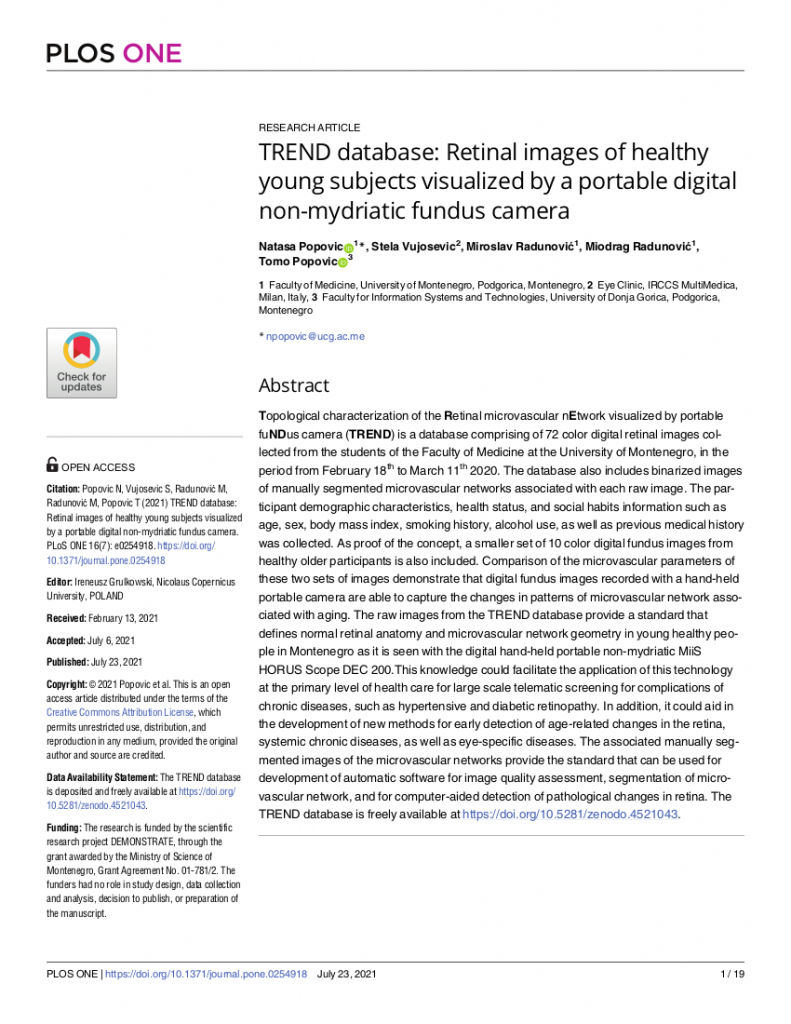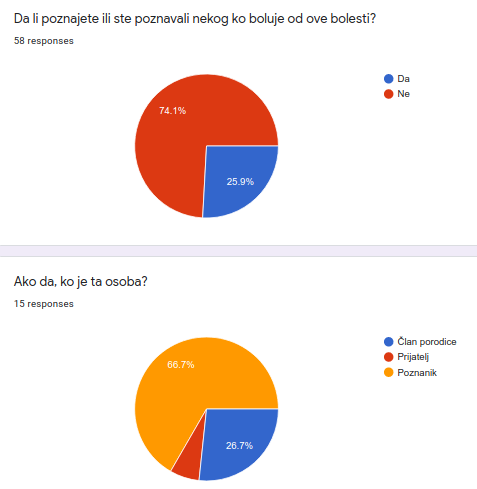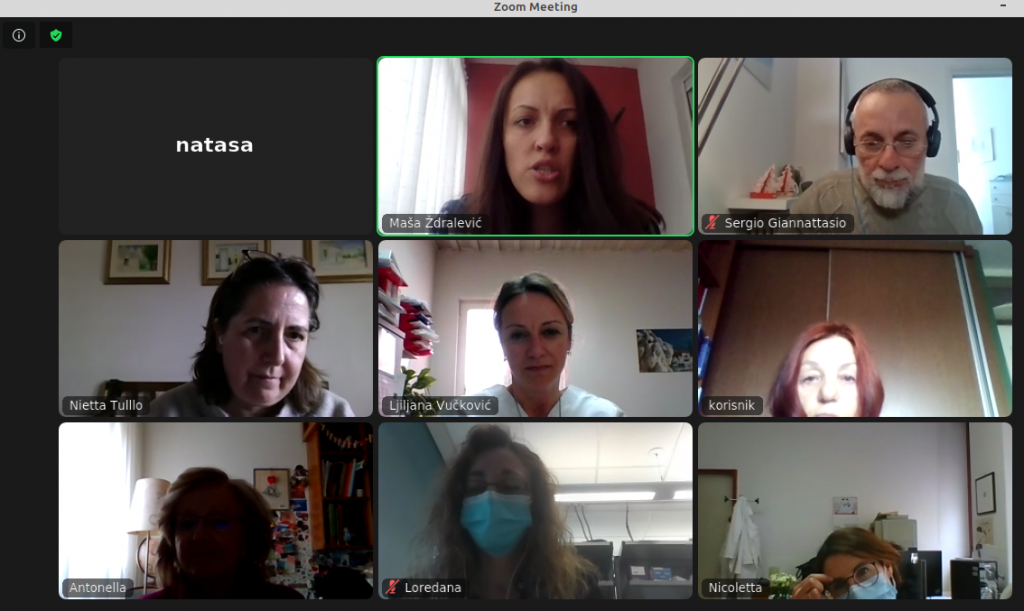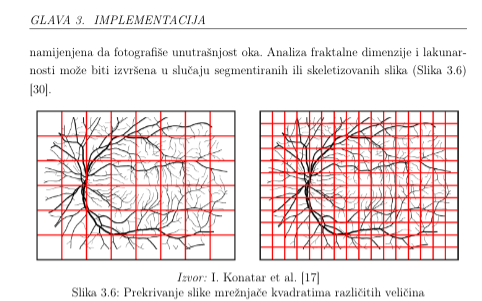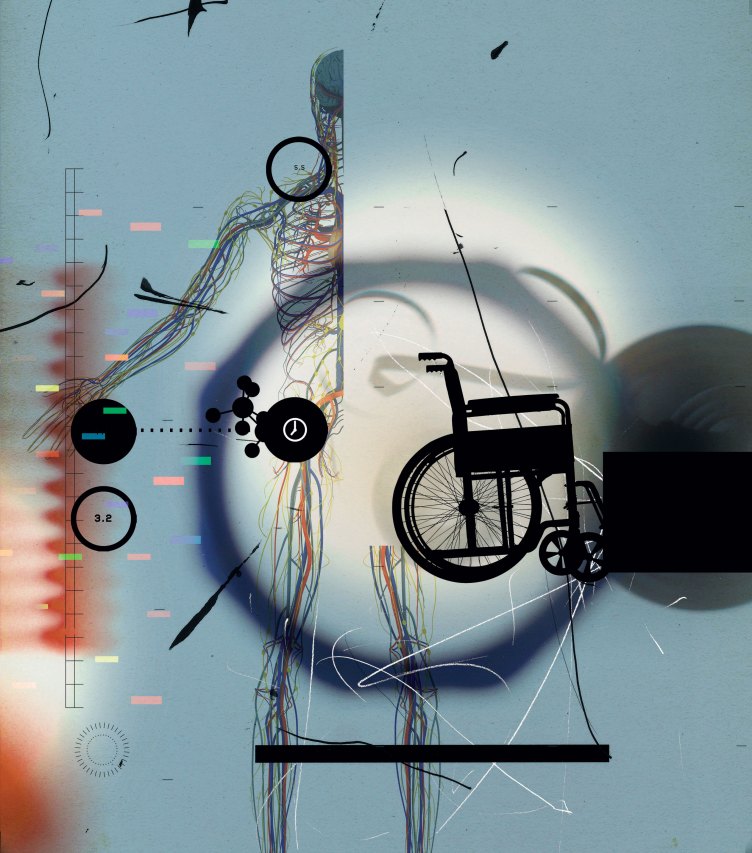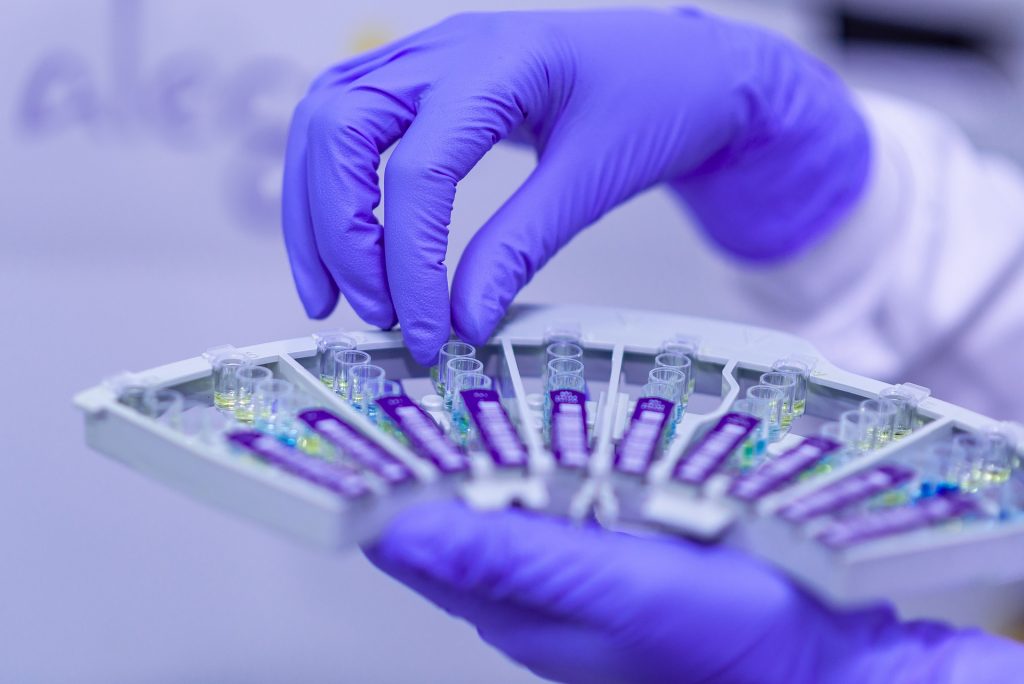A research paper called “TREND database: Retinal images of healthy young subjects visualized by a portable digital non-mydriatic fundus camera” authored by N. Popovic, S. Vujosevic, M. Radunovic, M. Radunovic, and T Popovic, was published in PLOS ONE journal. The paper represents one of the major contributions of DEMONSTRATE project and it is accompanied with a freely available database called TREND containing fundus images paired with their corresponding blood vessels annotations. The paper is published as open access and it can be read at https://doi.org/10.1371/journal.pone.0254918.
Abstract – Topological characterization of the Retinal microvascular nEtwork visualized by portable fuNDus camera (TREND) is a database comprising of 72 color digital retinal images collected from the students of the Faculty of Medicine at the University of Montenegro, in the period from February 18th to March 11th 2020. The database also includes binarized images of manually segmented microvascular networks associated with each raw image. The participant demographic characteristics, health status, and social habits information such as age, sex, body mass index, smoking history, alcohol use, as well as previous medical history was collected. As proof of the concept, a smaller set of 10 color digital fundus images from healthy older participants is also included. Comparison of the microvascular parameters of these two sets of images demonstrate that digital fundus images recorded with a hand-held portable camera are able to capture the changes in patterns of microvascular network associated with aging. The raw images from the TREND database provide a standard that defines normal retinal anatomy and microvascular network geometry in young healthy people in Montenegro as it is seen with the digital hand-held portable non-mydriatic MiiS HORUS Scope DEC 200.This knowledge could facilitate the application of this technology at the primary level of health care for large scale telematic screening for complications of chronic diseases, such as hypertensive and diabetic retinopathy. In addition, it could aid in the development of new methods for early detection of age-related changes in the retina, systemic chronic diseases, as well as eye-specific diseases. The associated manually segmented images of the microvascular networks provide the standard that can be used for development of automatic software for image quality assessment, segmentation of microvascular network, and for computer-aided detection of pathological changes in retina. The TREND database is freely available at https://doi.org/10.5281/zenodo.4521043.


